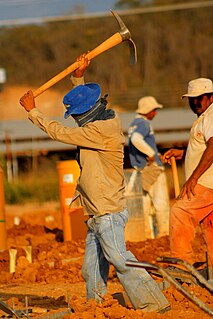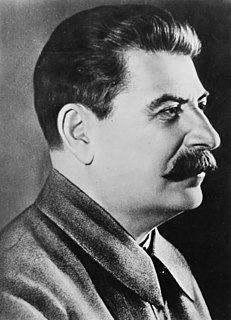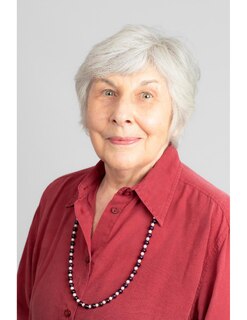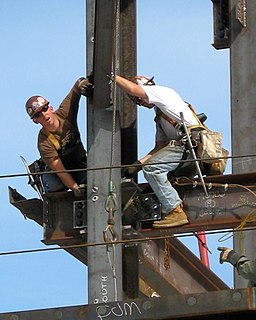
Nikita Sergeyevich Khrushchev was the First Secretary of the Communist Party of the Soviet Union from 1953 to 1964 and chairman of that country's Council of Ministers from 1958 to 1964. During his rule, Khrushchev stunned the communist world with his denunciation of Stalin's crimes, and embarked on a policy of de-Stalinization with his key ally Anastas Mikoyan. He sponsored the early Soviet space program, and enactment of relatively liberal reforms in domestic policy. After some false starts, and a narrowly avoided nuclear war over Cuba, he conducted successful negotiations with the United States to reduce Cold War tensions. In 1964, the Kremlin leadership stripped him of power, replacing him with Leonid Brezhnev as First Secretary and Alexei Kosygin as Premier.

Trotskyism is the political ideology and branch of Marxism developed by Ukrainian-Russian revolutionary Leon Trotsky and by some other members of the Left Opposition and Fourth International. Trotsky self-identified as an orthodox Marxist, a revolutionary Marxist, and Bolshevik–Leninist, a follower of Marx, Engels, and of 3L: Vladimir Lenin, Karl Liebknecht, Rosa Luxemburg. He supported founding a vanguard party of the proletariat, proletarian internationalism, and a dictatorship of the proletariat based on working class self-emancipation and mass democracy. Trotskyists are critical of Stalinism as they oppose Joseph Stalin's theory of socialism in one country in favor of Trotsky's theory of permanent revolution. Trotskyists also criticize the bureaucracy and anti-democratic current that developed in the Soviet Union under Stalin.

The term Stakhanovite (стахановец) originated in the Soviet Union and referred to workers who modeled themselves after Alexey Stakhanov. These workers took pride in their ability to produce more than was required, by working harder and more efficiently, thus strengthening the socialist state. The Stakhanovite Movement was encouraged due to the idea of socialist emulation. It began in the coal industry but later spread to many other industries in the Soviet Union. The movement eventually encountered resistance as the increased productivity led to increased demands on workers.

A blue-collar worker is a working class person who performs manual labor. Blue-collar work may involve skilled or unskilled labor. The type of work may involve manufacturing, warehousing, mining, excavation, electricity generation and power plant operations, electrical construction and maintenance, custodial work, farming, commercial fishing, logging, landscaping, pest control, food processing, oil field work, waste collection and disposal, recycling, construction, maintenance, driving, trucking and many other types of physical work. Blue-collar work often involves something being physically built or maintained.

A white-collar worker is a person who performs professional, desk, managerial, or administrative work. White-collar work may be performed in an office or other administrative setting. White-collar workers include job paths related to government, consulting, academia, accountancy, business and executive management, customer support, design, engineering, market research, finance, human resources, operations research, marketing, information technology, networking, law, healthcare, architecture, and research and development. Other types of work are those of a grey-collar worker, who has more specialized knowledge than those of a blue-collar worker, whose job requires manual labor and a pink-collar worker, whose labor is related to customer interaction, entertainment, sales, or other service-oriented jobs. Many occupations blend blue, white and pink (service) industry categorizations.

The General Secretary of the Central Committee of the Communist Party of the Soviet Union was the head of the Communist Party of the Soviet Union (CPSU). From 1929 until the union's dissolution, the holder of the office was the de facto leader of the Soviet Union, because the post controlled the party, state and the federal government. It was the de facto highest ranking office of the Union.
The history of the Soviet Union between 1927 and 1953 covers the period in Soviet history from the establishment of Stalinism through victory in the Second World War and down to the death of Joseph Stalin in 1953. Stalin sought to destroy his enemies while transforming Soviet society with central planning, in particular through the forced collectivization of agriculture and rapid development of heavy industry. Stalin consolidated his power within the party and the state and fostered an extensive cult of personality. Soviet secret-police and the mass-mobilization Communist Party served as Stalin's major tools in molding Soviet society. Stalin's methods in achieving his goals, which included party purges, political repression of the general population, and forced collectivization, led to millions of deaths: in Gulag labor camps and during famine.

Censorship in the Soviet Union was pervasive and strictly enforced.

Blue Collar is a 1978 American crime drama film directed by Paul Schrader, in his directorial debut. Written by Schrader and his brother Leonard, the film stars Richard Pryor, Harvey Keitel and Yaphet Kotto. The film is both a critique of union practices and an examination of life in a working-class Rust Belt enclave.

The military ranks of the Soviet Union were those introduced after the October Revolution of 1917. At that time the Imperial Russian Table of Ranks was abolished, as were the privileges of the pre-Soviet Russian nobility.

The Kuzbass Autonomous Industrial Colony was an experiment in workers' control in the Soviet Union from 1922 to 1926 during the New Economic Policy. It was based in Shcheglovsk, Kuzbass, Siberia.

Industrialisation in the Soviet Union was a process of accelerated building-up of the industrial potential of the Soviet Union to reduce the economy's lag behind the developed capitalist states, which was carried out from May 1929 to June 1941.

Sheila May Fitzpatrick is an Australian historian, whose main subjects are history of the Soviet Union and history of modern Russia, especially the Stalin era and the Great Purges, of which she proposes a "history from below", and is part of the "revisionist school" of Communist historiography. She has also critically reviewed the concept of totalitarianism and highlighted the differences between Nazi Germany and the Soviet Union in debates about comparison of Nazism and Stalinism.

After the United Kingdom, France, and Italy signed the Munich Agreement with Germany on 30 September 1938, an agreement which "provided 'cession to Germany of the Sudeten German territory' of Czechoslovakia, despite the existence of the 1924 alliance agreement and the 1925 military pact between France and the Czechoslovak Republic, a reason for which it is also known as the Munich Betrayal," almost a year later, the Soviet Union signed a non-aggression pact with Nazi Germany on 23 August 1939. In addition to stipulations of non-aggression, the treaty included a secret protocol that divided territories of Romania, Poland, Lithuania, Latvia, Estonia, and Finland into German and Soviet Union "spheres of influence", anticipating potential "territorial and political rearrangements" of these countries. In October and November 1940, German-Soviet talks about the potential of joining the Axis took place in Berlin, but nothing came from the talks since Hitler's Ideological goal was Lebensraum in the East.
The True Communists were one of the first known clandestine anti-Stalinist Communist youth organizations of the pre-war period, which has been founded and operated in the city of Jalal-Abad, Kirghiz SSR, in 1940.
The third camp, also known as third camp socialism or third camp Trotskyism, is a branch of socialism that aims to oppose both capitalism and Stalinism by supporting the organised working class as a "third camp".
"On the Cult of Personality and Its Consequences", popularly known as the "Secret Speech", was a report by Soviet leader Nikita Khrushchev, First Secretary of the Communist Party of the Soviet Union, made to the 20th Congress of the Communist Party of the Soviet Union on 25 February 1956. Khrushchev's speech was sharply critical of the rule of the deceased General Secretary and Premier Joseph Stalin, particularly with respect to the purges which had especially marked the last years of the 1930s. Khrushchev charged Stalin with having fostered a leadership cult of personality despite ostensibly maintaining support for the ideals of communism. The speech was leaked to the West by the Israeli intelligence agency Shin Bet, which received it from the Polish-Jewish journalist Wiktor Grajewski.

The working class comprises those engaged in manual-labour occupations or industrial work, who are remunerated via waged or salaried contracts. Working-class occupations include blue-collar jobs, and most pink-collar jobs. Members of the working class rely exclusively upon earnings from wage labour; thus, according to more inclusive definitions, the category can include almost all of the working population of industrialized economies, as well as those employed in the urban areas of non-industrialized economies or in the rural workforce.
The People's Commissariat for Internal Affairs, abbreviated NKVD, was the interior ministry of the Soviet Union.
Soviet democracy, or council democracy, is a political system in which the rule of the population by directly elected soviets is exercised. The councils are directly responsible to their electors and bound by their instructions using a delegate model of representation. Such an imperative mandate is in contrast to a free mandate, in which the elected delegates are only responsible to their conscience. Delegates may accordingly be dismissed from their post at any time or be voted out (recall).













